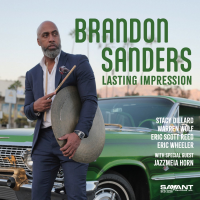But when it came time for Mr. Hernandez to accept his award as new artist of the year, he got drawn into politics, prefacing his remarks with a condemnation of the tough new immigration law that his home state of Arizona had just adopted.
It is deplorable that they are discriminating against us just for the simple fact of looking Latino, he said from the stage. Its not fair. We have to say no to that law.
Mr. Hernandez's name, however, is not on the list of prominent pop music performers who have declared that they will no longer perform in Arizona, one of the most dynamic markets for Latin music and culture. The boycott effort, called Sound Strike and led by the singer Zack de la Rocha of the rap metal band Rage Against the Machine, did get pledges from some big names, including the rapper Kanye West, indie rockers Sonic Youth and the trip hop duo Massive Attack. But it was light on mainstream big tent performers who can fill stadiums, and included no country music performers.
Still, the new law has galvanized Latino artists and performers not just in Arizona, but across the country and the hemisphere.
Mexican-Americans are not going to take this lying down, the singer Linda Ronstadt, an Arizonan of Mexican descent, said at a news conference in Phoenix last month. The Colombian singing star Shakira flew to the state last month to denounce the law as a violation of human and civil rights and met with Mayor Phil Gordon of Phoenix and other opponents of the legislation; but she has not signed the Sound Strike pledge.
In a telephone interview from Miami, the Colombian folk-rock singer Juanes, who has joined the boycott, said: Ive performed in Phoenix many times, and its sad that I'm not going to be able to play there. But from the moment I heard that this bill had become a reality, I felt offended and also that I had to stand in peaceful solidarity with our immigrant brothers who are being made the victims in this.
Boycott organizers said that additional activities were planned, including a fund-raising concert and a song or video modeled after the Sun City anti-apartheid campaign. Supporters of the boycott indicated that they will also step up their campaign to get performers to take the pledge not to play in Arizona.
We love Shakira and love her music and thank her for standing with us during the bills consideration, said Alfredo Gutierrez, chairman of the economic sanctions committee of Somos America, a coalition of human rights and religious groups that is leading opposition to the law. But ultimately we want her to join the others and not come here commercially.
Even before the Sound Strike boycott was announced, several acts specializing in Mexican regional music had canceled scheduled appearances in Arizona or decided to skip the state during tours planned for the summer. Among them are the popular singer-songwriter Jenni Rivera, from California, who is scheduled to participate in a protest march on Saturday, and Espinoza Paz and Conjunto Primavera.
It is not clear, however, to what extent commercial considerations may also have figured in those decisions. Mexican regional music performers, managers and booking agents said business was suffering even before Gov. Jan Brewer signed the law. They ascribed the decline to what they called a longstanding practice by Arizona law enforcement authorities, especially Sheriff Joe Arpaio of Maricopa County, of stopping fans coming out of arenas, clubs, rodeos, fairs and cantinas that they think will attract illegal immigrants.
Hispanic leaders and human rights groups contend that the authorities do not dispatch similar crime suppression sweeps to rock and country music concerts. Michael Nowakowski, who is both a vice mayor of Phoenix and general manager of Radio Campesina, a Spanish-language radio station, said that even Latinos who are American citizens or green card holders are afraid to attend music or theatrical events.

























